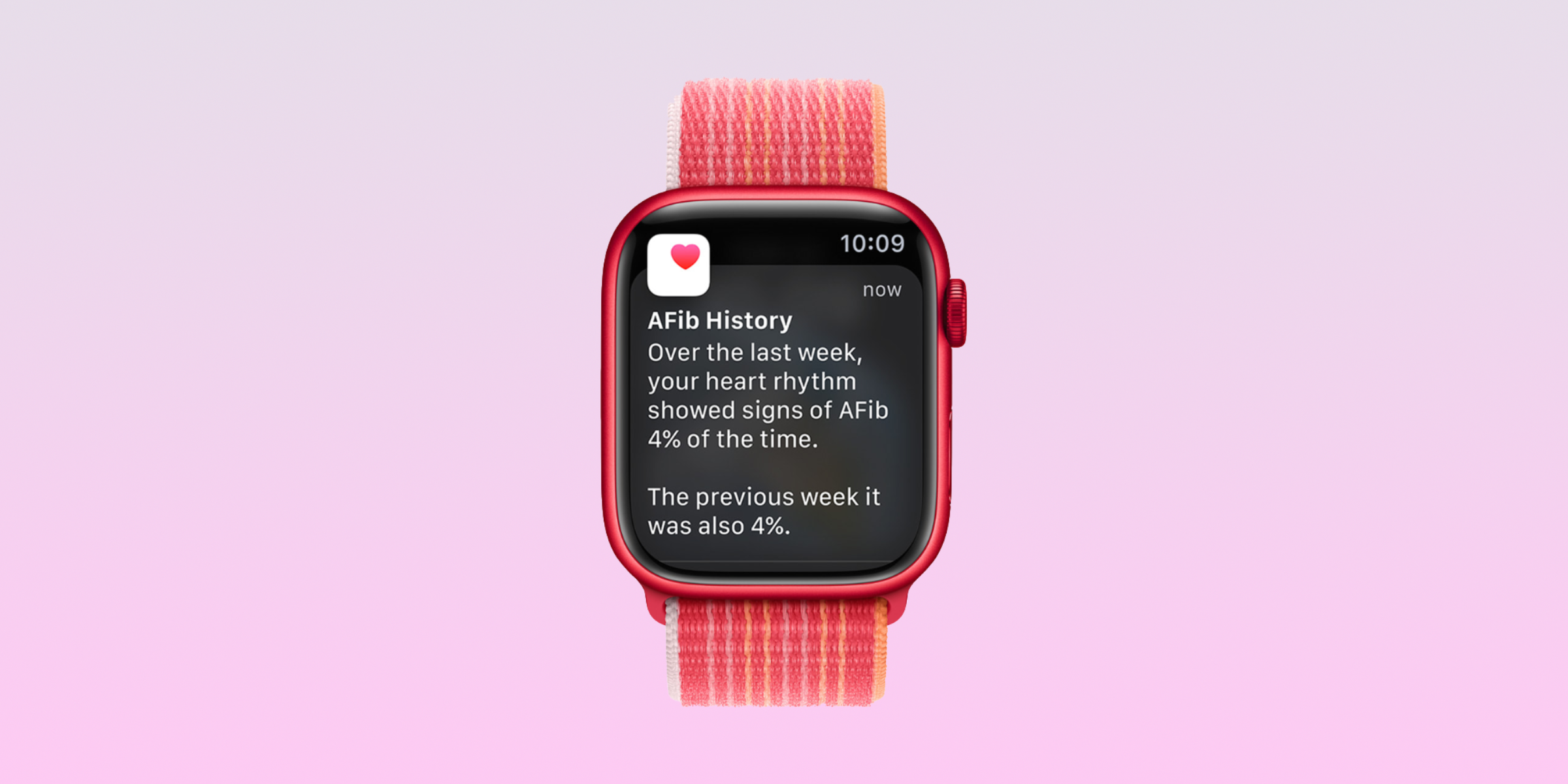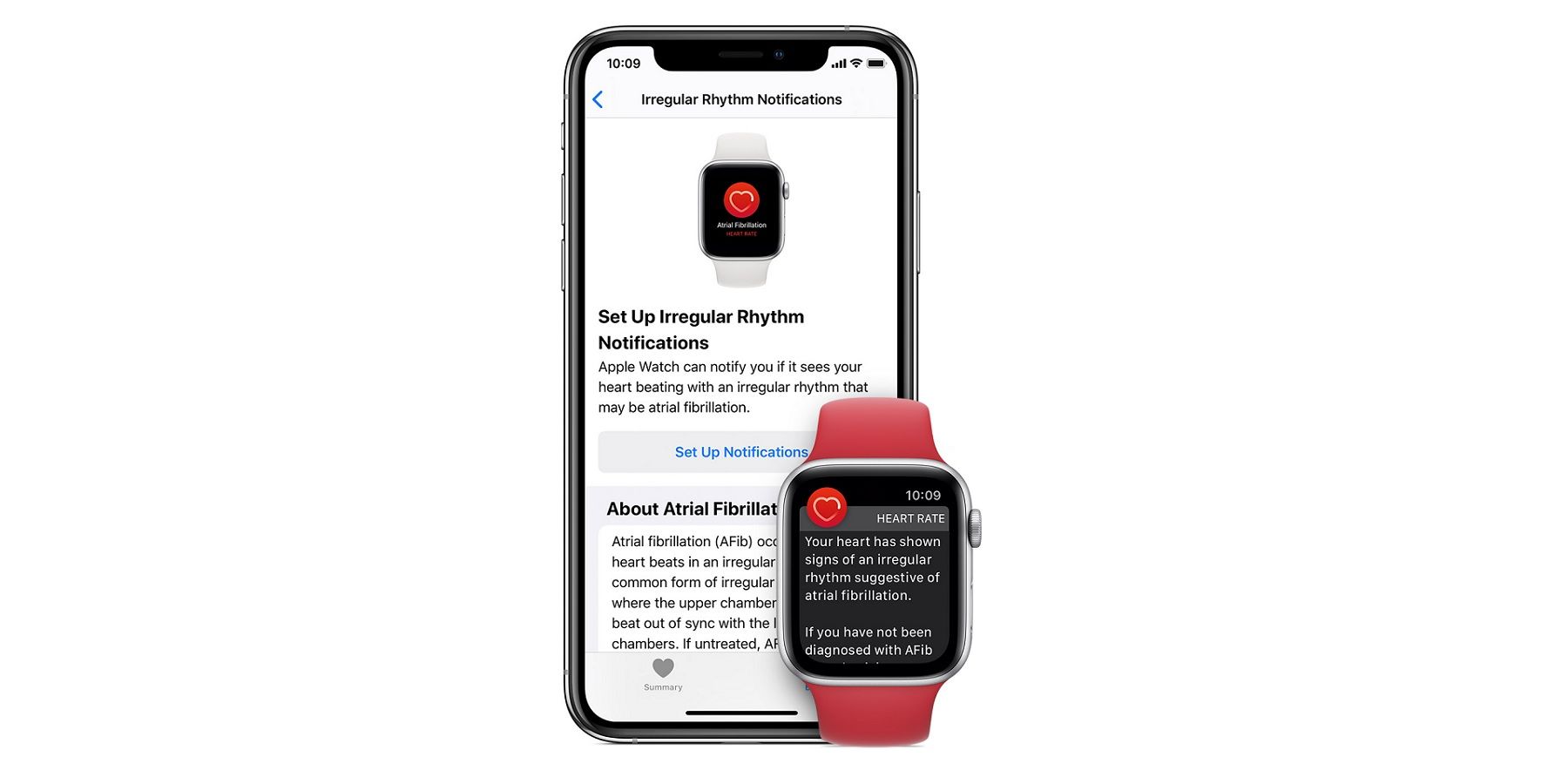The Apple Watch's optical sensor and electrocardiogram have been used to detect early signs of health issues before, but a new study from the Mayo Clinic shows that — combined with artificial intelligence (AI) — Apple's smartwatch can detect early cardiac dysfunction. From the beginning, Apple has positioned the Apple Watch as a critical health tool that might save a user's life. In addition, it opened the door for a new use of consumer technology — to provide users with peace of mind. Though many people hope they'll never need heart health monitoring on the Apple Watch or Crash Detection on the iPhone, it is there if they find themselves in an emergency.
Many instances have been reported where an Apple Watch has been used to save the wearer's life. However, in terms of health and science, Apple Watch data is more often used to explain or identify health problems rather than prevent them. In one case, a nurse discovered her Apple Watch detected health irregularities months before her eventual diagnosis. The Apple Watch may have immense potential to detect health problems before a clinical diagnosis, especially as more data is collected. That is precisely the use case researchers at the Mayo Clinic tested in a recent study via Apple's research tools.
Researchers at the Mayo Clinic, realizing that it is impossible to preemptively screen people for signs of left ventricular dysfunction, attempted to apply artificial intelligence to screen electrocardiograms at scale. The study was conducted remotely, with participants using a Mayo Clinic app — built on Apple HomeKit and Research tools — to record electrocardiograms on their Apple Watch. Researchers studied 2,454 patients and analyzed 125,610 Apple Watch electrocardiograms over five months. Following the study, the researchers found that Apple Watch and AI could effectively detect cardiac dysfunction.
What Is Cardiac Dysfunction & How Can Apple Watch Detect It?
The study broadly sought to detect cardiac dysfunction but focused on a type of cardiac dysfunction known as left ventricular dysfunction. This type of cardiac dysfunction is described as a weak heart pump and is severe and under-detected, according to the Mayo Clinic researchers. Their study was made possible by previous research studies that created AI models to assess medical-grade electrocardiograms and predict cardiac dysfunction. Still, Mayo Clinic researchers aimed to expand the potential of AI by using Apple Watch electrocardiograms as the data source.
The AI model successfully detected cardiac dysfunction at a clinically significant rate, meaning that the combination of artificial intelligence and Apple Watch data is a viable way to preemptively screen for heart issues. In addition, researchers found that it is an easier and cheaper way for users and healthcare institutions to screen for cardiac dysfunction, requiring just a few recorded ECGs at select intervals. However, it notes that since Apple Watches are still priced as a luxury, the clinical application of Apple Watch electrocardiograms may not work for all communities at scale. But with creative applications and increased availability, it's clear that the Apple Watch is a valuable health tool that can detect specific health issues — like cardiac dysfunction — before patients require intense medical care.
Source: Nature Medicine / Mayo Clinic


